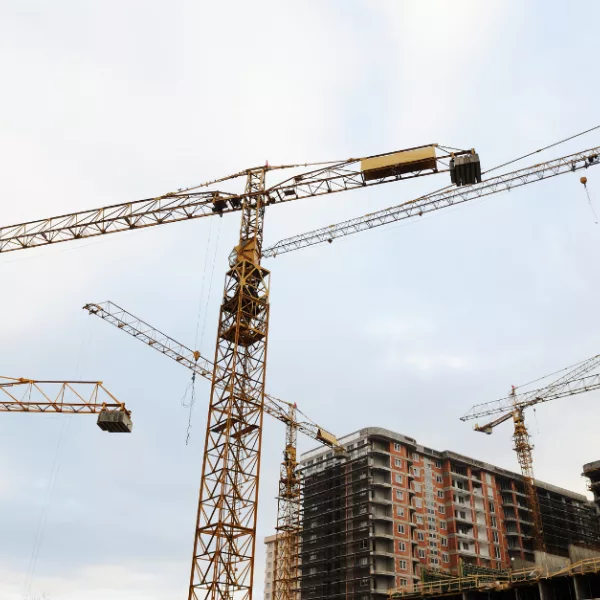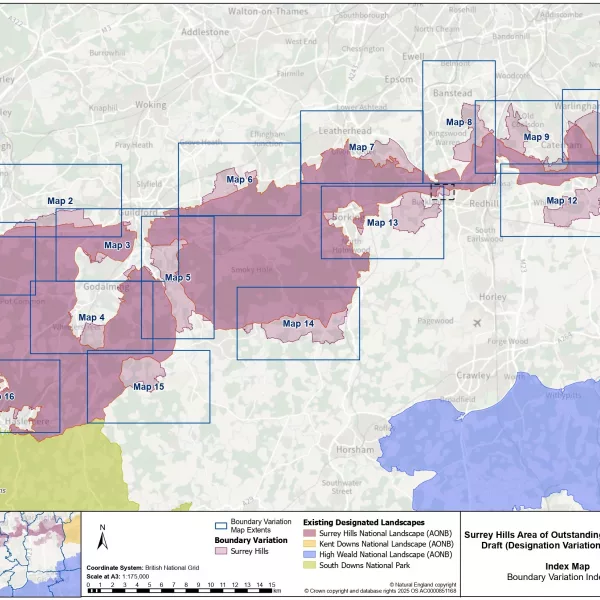
BNG- One Year On
We’re now over a year since mandatory Biodiversity Net Gain (BNG) requirements came into force, but the dust still hasn’t quite settled. Providing the requisite 10% net gain has been challenging in many cases, especially on small sites where this is little scope to accommodate the enhancements required. Off-site contributions can be equally, if not more onerous, especially where legal agreements are required. This can also lead to questions around viability, which is perhaps the subject for another article.
It seems that the government are aware of these challenges, or at least in some cases. Recently the ‘Planning Reform Working Paper: Reforming Site Thresholds’ was published, proposing reforms to site size thresholds in order to remove and streamline disproportionate requirements on small and medium sites. In addition, two consultations began on 28 May, the first of which seeks views on BNG requirements in relation to minor, medium and brownfield sites, and the second of which is seeking views on the implementation of BNG for nationally significant infrastructure projects (NSIPs). With regard to the former two, it is important to note that the changes are being considered for residential development only.
The Planning Reform Working Paper suggests a graduated approach to the system in terms of site sizes, aiming to simplify planning requirements for smaller sites and to help small and medium housebuilders to deliver new homes.
The Paper sets out three main size thresholds which are:
1. Minor Residential Development – fewer than 10 homes / up to 0.5 hectares
a). Very small sites – under 0.1 hectares
2. Medium Residential Development – between 10-49 homes / up to 1 hectare
3. Major Residential Development – 50+ homes / 1+ hectare
With regard to BNG for the smallest sites, the Paper suggests streamlined requirements and potential full exemptions, whilst for medium sites there is discussion of a simplified metric. Further details are set out within the Department for Environment, Food and Rural Affairs (DEFRA) consultation ‘Improving the implementation of biodiversity net gain for minor, medium and brownfield development’ and summarised below.
Minor, Medium and Brownfield Development
There are two key options being considered for minor developments to ensure that BNG requirements are more proportionate. The first involves revisions to self and custom build development and development below the de minimis threshold. The second is a full exemption for all minor developments. The consultation sets out various examples as to how these options may be applied and acknowledges that currently, some minor developments above the di minimis threshold are struggling to provide 10% BNG through on-site enhancement.
There are three new thresholds being considered: 50 square metres (sqm), 100 sqm and 250 sqm. Linear habitats including hedgerows and watercourse modules will remain at the minimum 5 metre threshold.
You will note above and throughout the consultation that the key driver here is to allow for the delivery of more homes so unfortunately the proposed changes won’t help small-scale commercial developments. Nonetheless, these are positive changes that will hopefully help to bring more housing developments forward.
Nationally Significant Infrastructure Projects (NSIPs)
On a much larger scale, the government is also proposing to introduce BNG for NSIPs in May 2026. Although NSIPs are already liable for BNG this is currently covered under a different regime and the intention is to ensure consistency across all sectors, creating a ‘core’ approach to BNG for all NSIP types.
The respective consultations run until 23:59 on 24 July 2025, both of which can be found here:
Improving the implementation of biodiversity net gain for minor, medium and brownfield development
As we have only covered the proposed changes in brief, do get in touch if you have any queries about the consultations or BNG in general. We’d be happy to help.
planning@union4.co.uk
Other news
See all

London Housebuilding: Emergency Measures
The Government and GLA are currently consulting on two documents aimed at stimulating and reviving housing delivery across London, in response to a…...
Read now
Surrey Hills Area of Outstanding Natural Beauty - Boundary Extensions: Last opportunity to make representations
Natural England have given notice of their intention to Vary the Designation Order to include boundary extensions to the Surrey Hills Area of…...
Read now